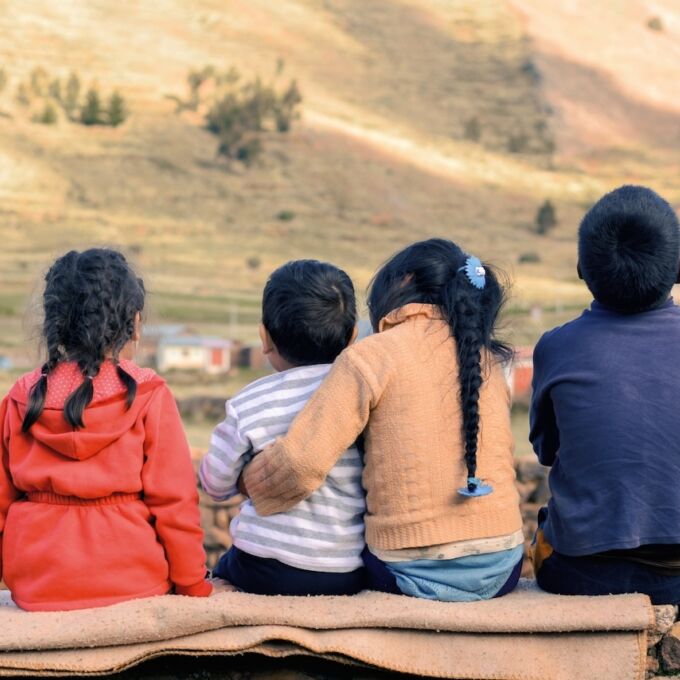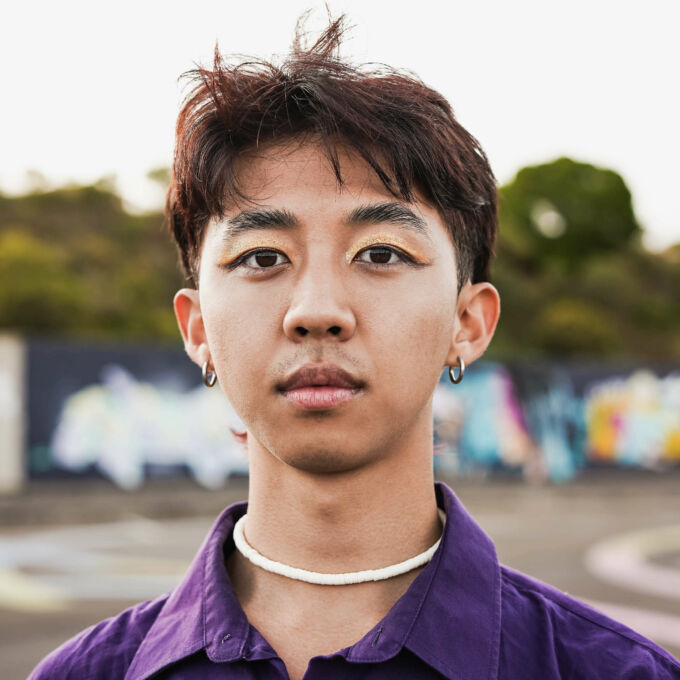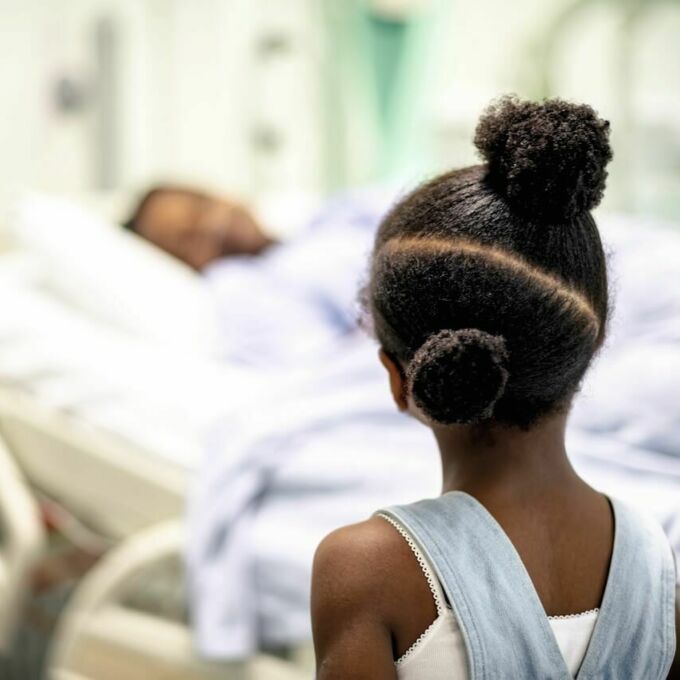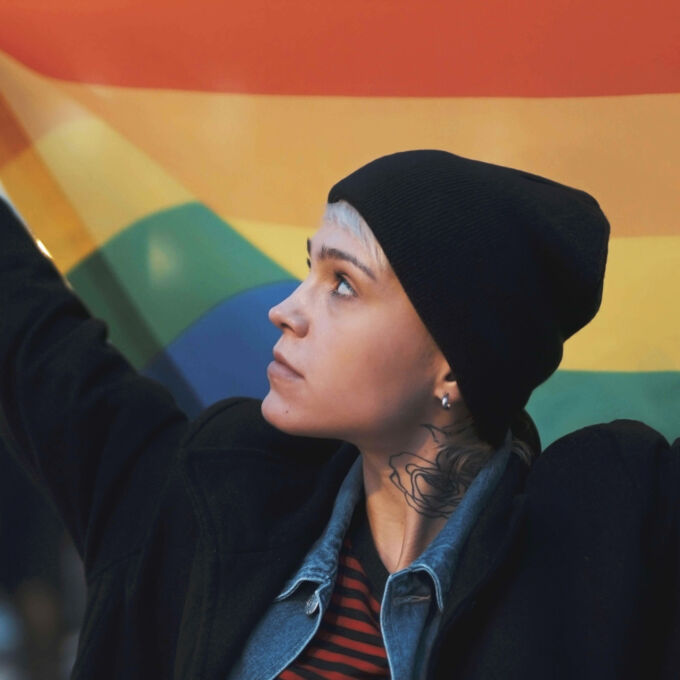
When Losses Compound
Understanding Loss
Certain populations—often those with marginalized identities such as BIPOC individuals and those who identify as LGBTQIA+—face a higher likelihood of loss. There are many intersecting reasons for this that are related to systemic injustice, infrastructure issues, and inequality.
Disproportionate Loss
65% of children orphaned as a result of COVID are of a racial or ethnic minority.
U.S. Murders of trans people nearly doubled over past 4 years and Black trans women are most at risk.
Hate crimes against Asian Americans and Pacific Islanders, sparked by the COVID-19 pandemic, increased by 76% from 2019 to 2020 and another 339% from 2020 to 2021.
Black and Brown children are 2X more likely to have a father die and 3X more likely to have a mother die compared to White children.
LGBTQ+ young people are more than four times as likely to attempt suicide than their peers.
Indigenous children lose caregivers at rates of nearly four times the rate of White children.
What This Means
Kids and teens from communities that face disproportionate amounts of loss and at earlier ages than their peers may appear to grieve differently than those with identities that afford more privilege Their ability to express or even acknowledge their grief over losses like changing schools or a friends moving away might be limited.
This does not mean that these losses don’t impact them, rather that their capacity to process additional grief is overwhelmed by other disruptive losses they are already experiencing. Due to the sheer amount loss kids and teens within these communities face, their minds and bodies are already maxed out on grief.
These same kids and teens may also have more difficulty accesses needed support services and other helpful resources, which can exacerbate their experience of loss.
The Myth of Apathy
In this clip from the WPSU-FM series Take Note, Dr. Tashel Bordere, assistant professor in the Department of Human Development and Family Science at the University of Missouri-Columbia, talks with WPSU’s Lindsey Whissel Fenton about harmful misconceptions around grief reactions in African American youth.
Suffocated Grief
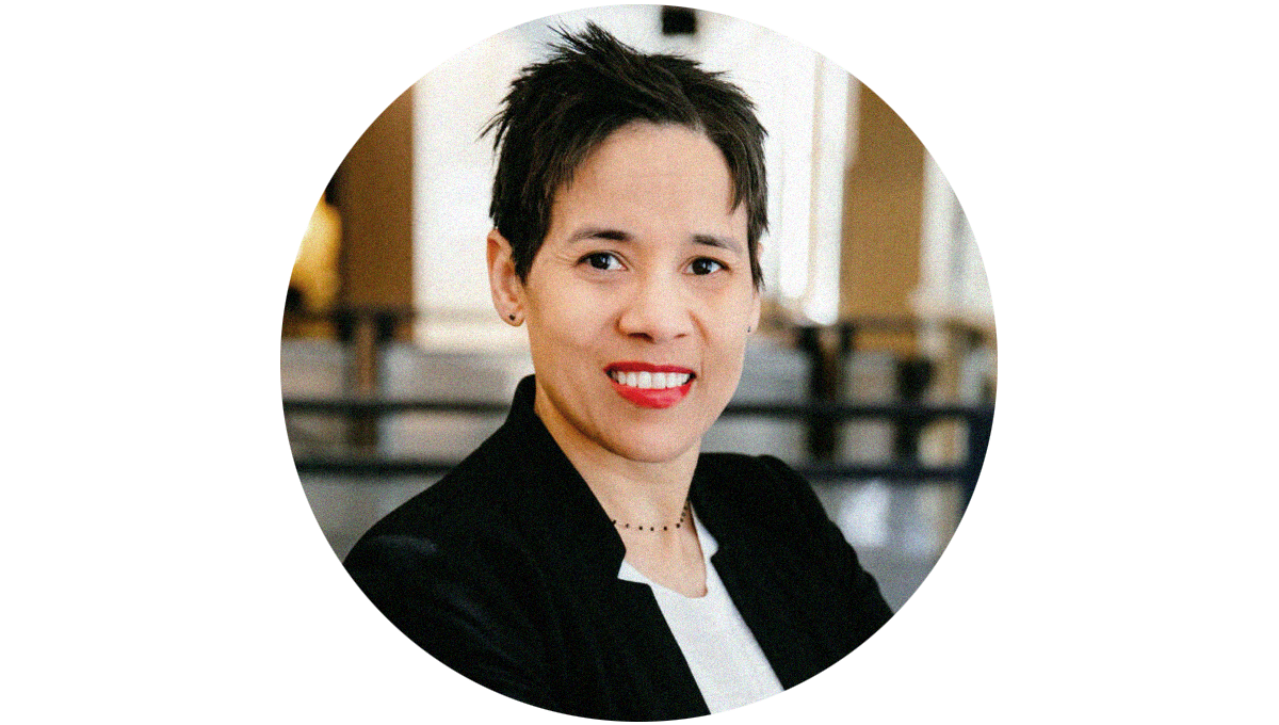
Suffocated grief, a term coined by Dr. Tashel Bordere, is when a kid or teen is punished or penalized for their normal grief reactions. Suffocated grief most frequently occurs when the grieving person holds a marginalized identity (e.g., a person of color, a member of the LGBTQIA+ community, etc.). Incidentally, these youth are also at an increased risk for experiencing loss due to multiple societal factors and inequities.
Navigate through the cards below to see some examples of suffocated grief.
Sharing What You Know
Developing awareness of how loss, marginalization, and privilege intersect can increase your insight as to what a kid or teen may be experiencing. Be mindful that just because you don't observe them grieving certain losses doesn't mean they aren't feeling the impact of those losses. Let your support efforts be led by curiosity and encourage the young people in your life to do the same when interacting with their peers.
Resources for When Losses Compound
All Ages
Community Conversation: Grief Through the Lens of Black Communities
Description: The Grief Through the Lens series continues on June 23rd, 2022 exploring grief responses and traditions among Black communities with moderator Jennifer Lewis-Hall of PHL-17. Our panel includes social workers, psychologists, public health advocates, and diversity experts who specialize in understanding the impact of intergenerational trauma, building resiliency, and supporting grieving children and families.
Source: Eluna Network

Cultural Sensitivity Module
Description: This video addresses the role of cultural considerations in supporting children and families in the aftermath of a death. Each culture has its own traditions, rituals, and practices when a family member dies. The overall goal is to bring a general sensitivity to the unique needs of a specific grieving child and their family in the context of their identified culture.
Source: Coalition to Support Grieving Students
Experience Camps: The Racial Grief Gap
Description: This section of the Experience Camp website provides information and statistic on the racial disparities related to childhood bereavement.
Source: Experience Camps

Hetrick-Martin Institute
Description: Hetrick-Martin Institute provides free year-round programs and services for LGTBQIA+ youth and allies ages 13-24 in New York City.
Source: Hetrick-Martin
Lens of LGBTQ+ Youth & Communities
Description: In this Grief Through the Lens series, our esteemed panelists invited us to expand the definition of grief by honoring intergenerational activism, intersectionality, and collective grief experiences within queer & trans communities. Our panel also explored unique barriers to grief support and actionable steps to build brave and affirming spaces for LGBTQ+ youth and communities.
Source: Eluna Network
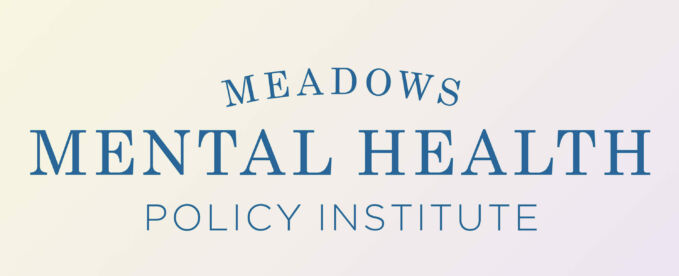
Supporting Immigrant Youth Exposed to Trauma & Loss
Description: In this webinar, Dr. Priscilla Mendez, PsyD, discusses ways to support immigrant youth exposed to trauma and loss. The focus of this webinar includes a brief overview of trauma and grief and the importance of distinguishing the two constructs.
Source: Meadows Mental Health Policy Institute

Take Note: Dr. Tashel Bordere on Suffocated Grief
Description: WPSU's Lindsey Whissel Fenton interviews Dr. Tashel Bordere. | Dr. Tashel Bordere's research focuses on grief and loss among African American youth and has identified the term suffocated grief to describe when normal grief reactions among marginalized populations are not only dismissed, but punished.
Source: WPSU
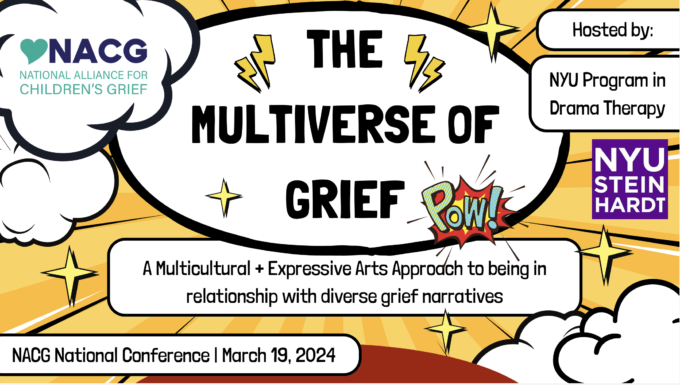
The Multiverse of Grief - 2024 National Conference and Webcast Slideshow
Description: A PDF version of the slideshow that accompanies the presentation by the same name.
Source: NACG

The Multiverse of Grief - "My Graphic Novel" template
Description: During the 2024 National Conference and Webcast, presenters used the "My Graphic Novel" in an experiential presentation, demonstrating how to use "My Graphic Novel" in grief and loss support.
Source: NACG
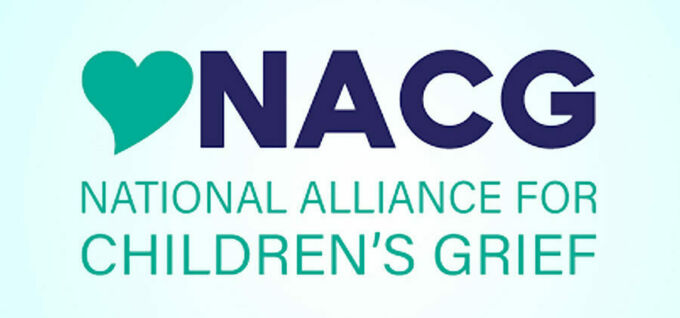
The Multiverse of Grief - 2024 National Conference and Webcast
Description: A multicultural and expressive arts approach to being in relationship with diverse grief narratives. Hosted by Adam D-F. Stevens, MA, RDT. Presented March 19, 2024.
Source: NACG

